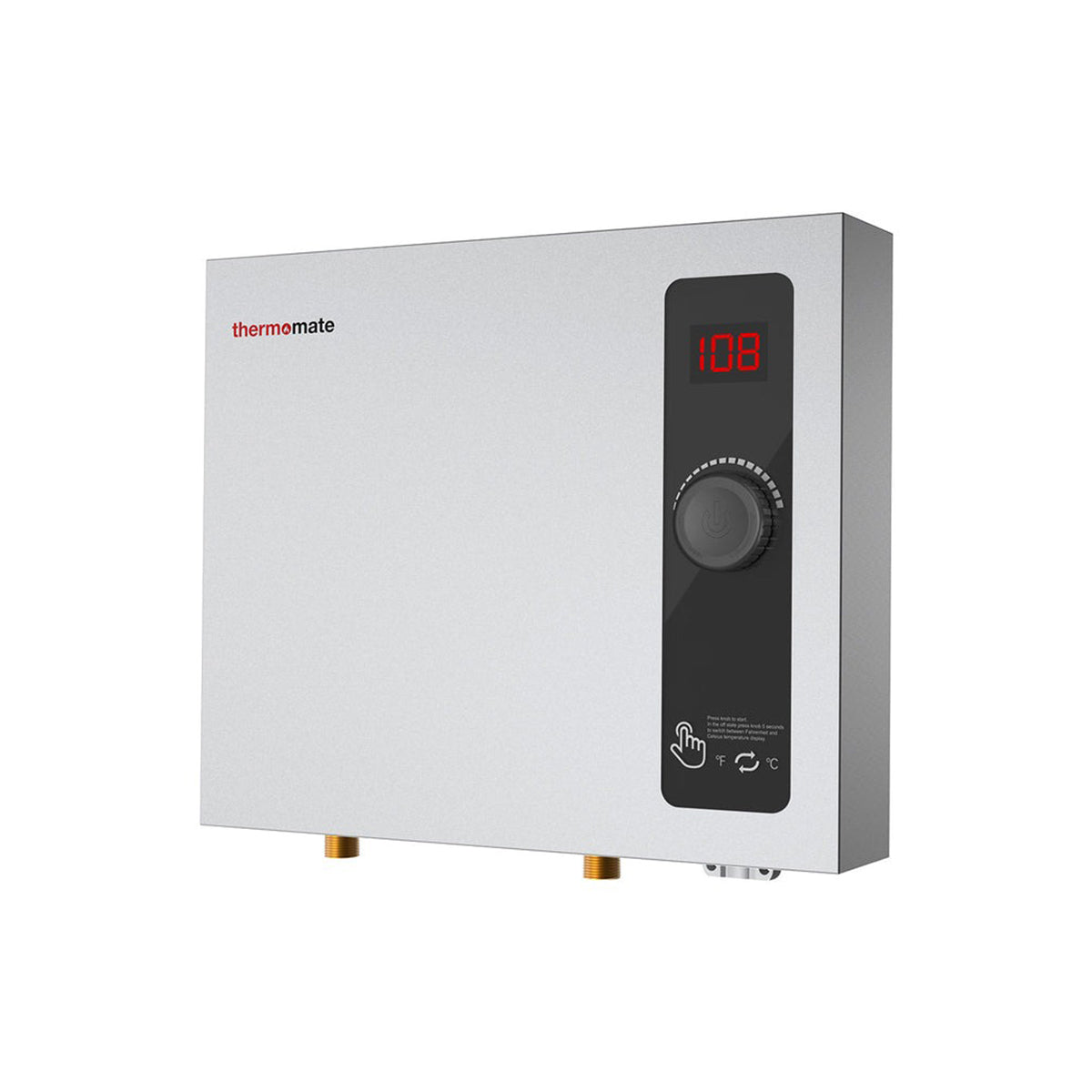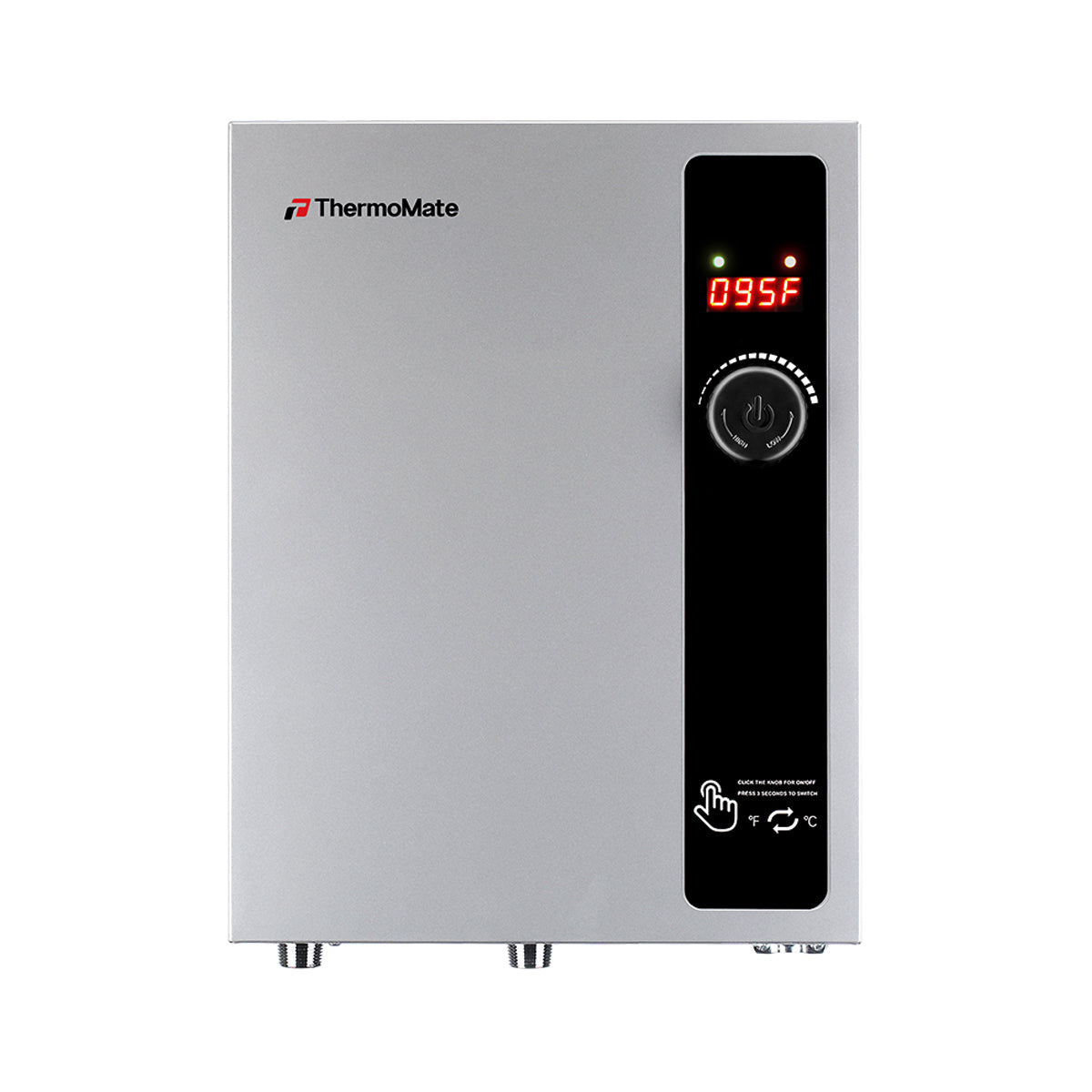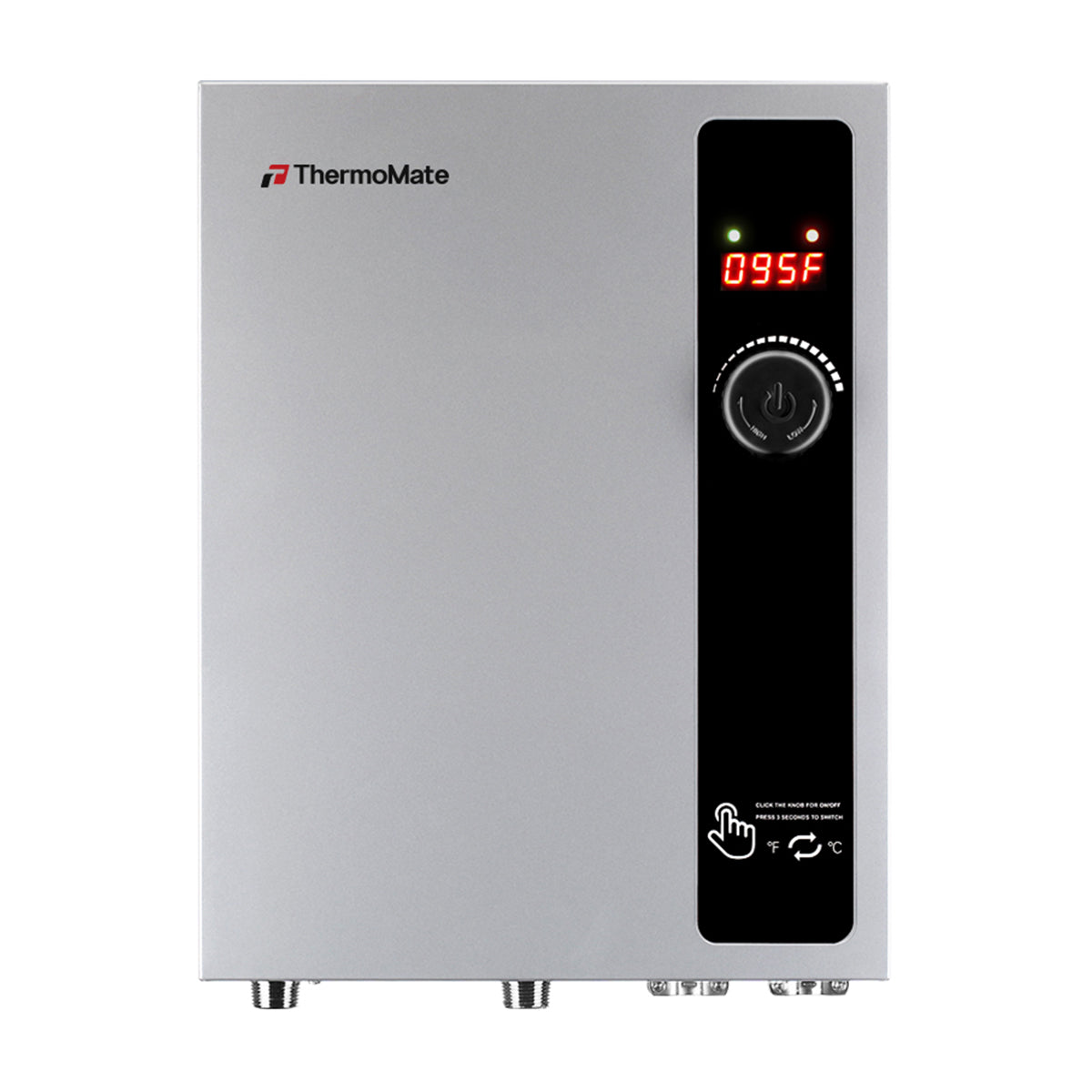Ihr Warmwasserbereiter ist ein unverzichtbares Haushaltsgerät und liefert Warmwasser zum Duschen, Waschen, Geschirrspülen und mehr. Wie jedes mechanische System haben Warmwasserbereiter jedoch eine begrenzte Lebensdauer und müssen irgendwann ausgetauscht werden. Wenn Sie die Warnsignale für einen Ausfall Ihres Warmwasserbereiters erkennen, können Sie unerwartete kalte Duschen und mögliche Wasserschäden vermeiden. In diesem Blogbeitrag untersuchen wir einige häufige Anzeichen dafür, dass es Zeit für einen neuen Warmwasserbereiter sein könnte.
Alter:
Einer der wichtigsten Indikatoren dafür, dass Sie einen neuen Warmwasserbereiter benötigen, ist sein Alter. Die meisten herkömmlichen Warmwasserbereiter mit Speicher haben eine Lebensdauer von etwa 8 bis 12 Jahren, während Durchlauferhitzer bei ordnungsgemäßer Wartung bis zu 20 Jahre halten können. Wenn sich Ihr Warmwasserbereiter dem Ende seiner erwarteten Lebensdauer nähert oder diese bereits überschritten hat, ist es ratsam, einen Austausch zu planen, auch wenn er noch einwandfrei funktioniert. Ältere Geräte sind anfälliger für Leckagen, Korrosion und Leistungseinbußen. Daher kann proaktives Handeln Sie vor unerwarteten Ausfällen schützen.
Nicht genügend Warmwasser:
Wenn Sie feststellen, dass Ihr Warmwasserbereiter weniger Warmwasser produziert oder das Wasser länger als gewöhnlich zum Erhitzen braucht, könnte dies ein Zeichen dafür sein, dass Ihr Warmwasserbereiter in die Jahre gekommen ist. Ablagerungen, verschlissene Heizelemente oder ein defekter Thermostat können zu einer reduzierten Warmwasserleistung beitragen. Einige dieser Probleme lassen sich zwar beheben, aber wenn Ihr Warmwasserbereiter alt ist und mehrere Probleme aufweist, kann es kostengünstiger sein, ihn durch ein neueres, effizienteres Modell zu ersetzen.
Seltsame Geräusche:
Ungewöhnliche Geräusche aus Ihrem Warmwasserbereiter, wie Knallen, Klopfen oder Rumpeln, sind oft ein Zeichen für Ablagerungen im Tank. Beim Erhitzen des Wassers können sich Mineralien und Ablagerungen am Boden des Tanks absetzen. Dadurch bildet sich eine Sedimentschicht, die die Wärmeübertragung beeinträchtigt und zu einer Überhitzung des Tanks führen kann. Unbehandelt kann dies zu einem vorzeitigen Ausfall des Warmwasserbereiters führen. Wenn Sie ungewöhnliche Geräusche aus Ihrem Warmwasserbereiter hören, lassen Sie ihn unbedingt von einem Fachmann überprüfen, um die Ursache zu ermitteln und festzustellen, ob ein Austausch erforderlich ist.
Lecks:
Sichtbare Lecks rund um Ihren Warmwasserbereiter sind ein deutliches Anzeichen dafür, dass etwas nicht stimmt und sollten nicht ignoriert werden. Selbst kleine Lecks können schnell zu großen Wasserschäden führen, die Schimmelbildung, strukturelle Probleme und kostspielige Reparaturen zur Folge haben. Wenn Sie Wasserpfützen rund um Ihren Warmwasserbereiter oder Anzeichen von Korrosion am Tank bemerken, ist es wichtig, das Problem umgehend zu beheben. In manchen Fällen lassen sich Lecks reparieren, aber wenn Ihr Warmwasserbereiter alt ist oder andere Anzeichen eines Defekts aufweist, ist ein Austausch möglicherweise die beste Lösung.
Rostiges oder verfärbtes Wasser:
Rostiges oder verfärbtes Wasser aus Ihren Wasserhähnen ist ein Zeichen für Korrosion im Tank Ihres Warmwasserbereiters. Mit zunehmendem Verschleiß können Rostpartikel die Wasserversorgung verunreinigen und ein Gesundheitsrisiko für Sie und Ihre Familie darstellen. Wenn Sie beim Aufdrehen des Warmwasserhahns rostiges oder verfärbtes Wasser bemerken, lassen Sie Ihren Warmwasserbereiter unbedingt von einem Fachmann überprüfen, um das Ausmaß der Korrosion festzustellen und festzustellen, ob ein Austausch erforderlich ist.
Abschluss:
Ihr Warmwasserbereiter ist ein wichtiger Bestandteil Ihres Sanitärsystems und liefert Warmwasser zum Baden, Putzen und Kochen. Wenn Sie die Warnsignale für einen Ausfall Ihres Warmwasserbereiters kennen, können Sie unerwartete Störungen und mögliche Wasserschäden vermeiden. Wenn Sie eines der oben genannten Anzeichen bemerken, wenden Sie sich unbedingt an einen professionellen Klempner, um den Zustand Ihres Warmwasserbereiters zu beurteilen und die beste Vorgehensweise zu bestimmen. Durch proaktives Handeln stellen Sie eine zuverlässige Warmwasserversorgung Ihres Hauses sicher und vermeiden gleichzeitig kostspielige Reparaturen und Austauscharbeiten in der Zukunft.
Erfahren Sie mehr über: Eine umfassende Anleitung zur Wartung Ihres Durchlauferhitzers






